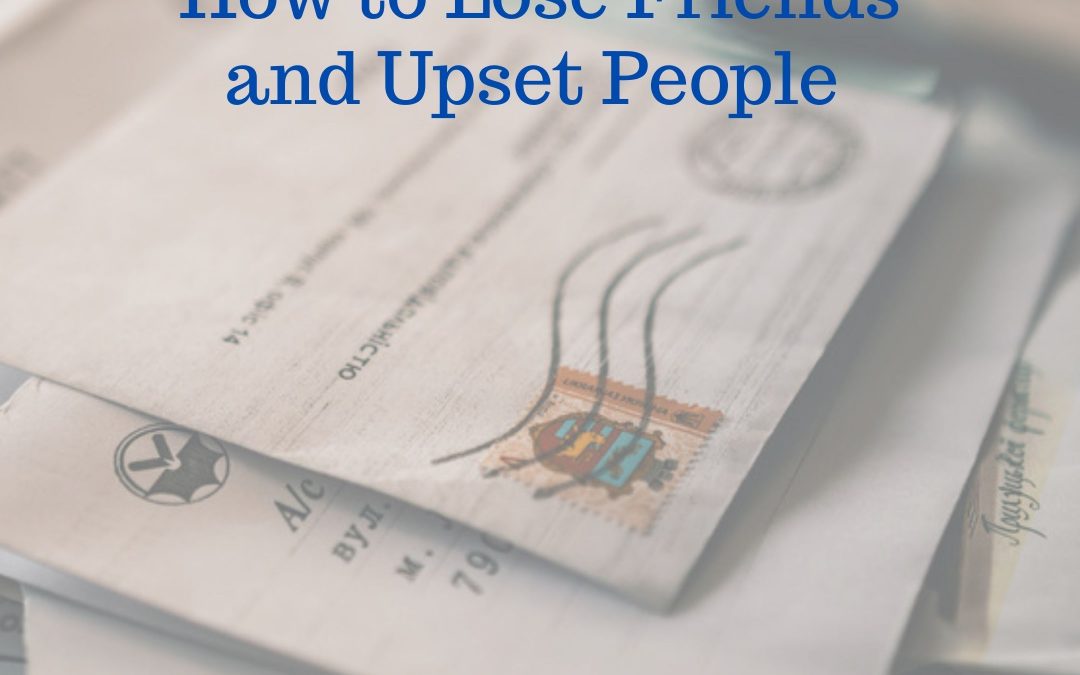How to Lose Friends and Upset People? Do you know it? Have you ever been offended by a business mail or text message? If not, you’re either lucky with your clients or you have a thicker skin than me. I know we English are a little sensitive about these things, but there do seem to be avoidable misunderstandings, so I decided to set out the things that raise my hackles in professional writing as a guide to keeping on the sweeter side of your native-speaker contacts.
Big Requests
Most of us have to write too many emails, so a friendly but abbreviated style is not only justified in most cases, it’s essential. If you need something, a phrase like “Please send…” is fine, but I normally use a “can you…?” question (no please needed). “Could you…?” is a nice touch: you’re using two more letters than the original can, so I feel slightly special and might respond a bit sooner, but probably not if I’m honest. However, if you need a really big favour, something outside the normal scope of what I’m paid for, I’m looking for a correspondingly big request formula. “Would you mind …ing?” is usually sufficient, provided you remember the …ing bit at the end of the action, but my favourite is the ultra-diplomatic “would it be possible for you to….?”. This is even harder to resist if you prepare the ground by anticipating and neutralising my objections: “I know this is tricky, and I apologise, but…”.
Not OK
Having established the idea that English speakers expect a few more words than necessary if you’re trying to seduce us, we come to abbreviations. A good way to ruin all the good work you’ve done with a nice long request is to stick “ASAP” at the end. ASAP tells me that you think your time is more valuable than mine; that I don’t even merit complete sentences while you expect my immediate attention. The other problem with abbreviations is their ambiguity. You might think that “LOL” stands for “laugh out loud”, whereas your older British colleague reads “lots of love” and phones Security. And unbelievable as it may be, there are still people out there who don’t know what a “KPI” is. Unless you’re sure that an abbreviation is acceptable and universally understandable, it’s probably worth taking the extra few seconds to write “…as soon as you can”.
Be Precise
Even better, where possible is to give me something more definite. “Can you do it by 17.00?” not only allows me to consider my schedule, it also gives you a deadline to depend on if I agree to help. You can save a lot of time (and sarcastic comments) by anticipating questions and your own needs. If you want to know whether I can translate a contract today, start by telling me how many pages there are. For the same reason, the horrendous “BCOB” is rarely a good idea since “by close of business” just means “when you want to go home” (most likely, before me).
The Magic Words 2.0
In my last blog I mentioned how important the words please, sorry and thanks can be for native speakers. We use them so much, in fact, that we sometimes want something a bit stronger for special occasions, to show how really grateful we are or would be. I’ll be looking at alternatives forms for apology and appreciation in my next blog.


